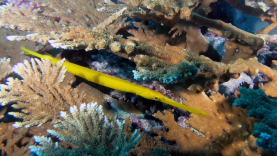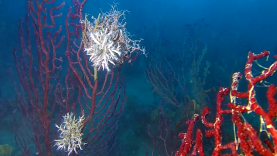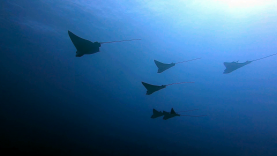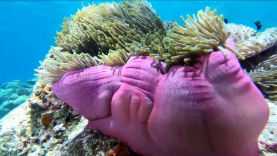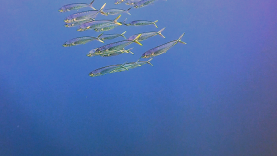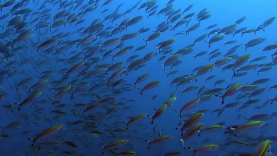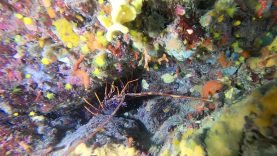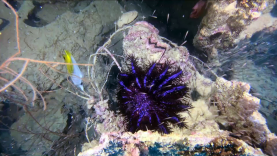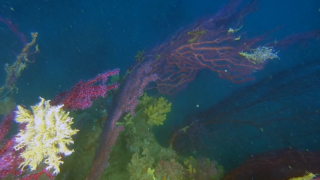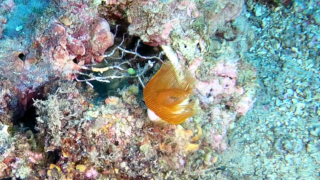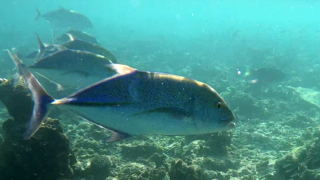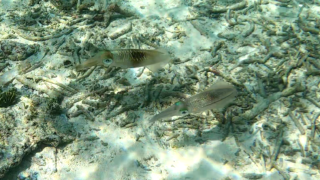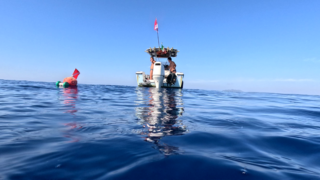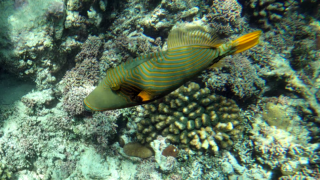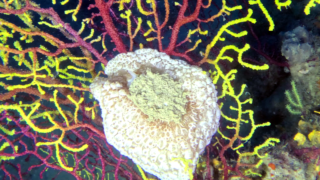Lunar Fusilier
The lunar fusilier (Caesio lunaris) is a species of marine fish in the family Caesionidae. The lunar fusilier is widespread throughout the tropical waters of the Indo/West Pacific area, including the Rea Sea. This fish can reach a maximum size of 40 cm in length and they live in coral reefs. il fuciliere lunare
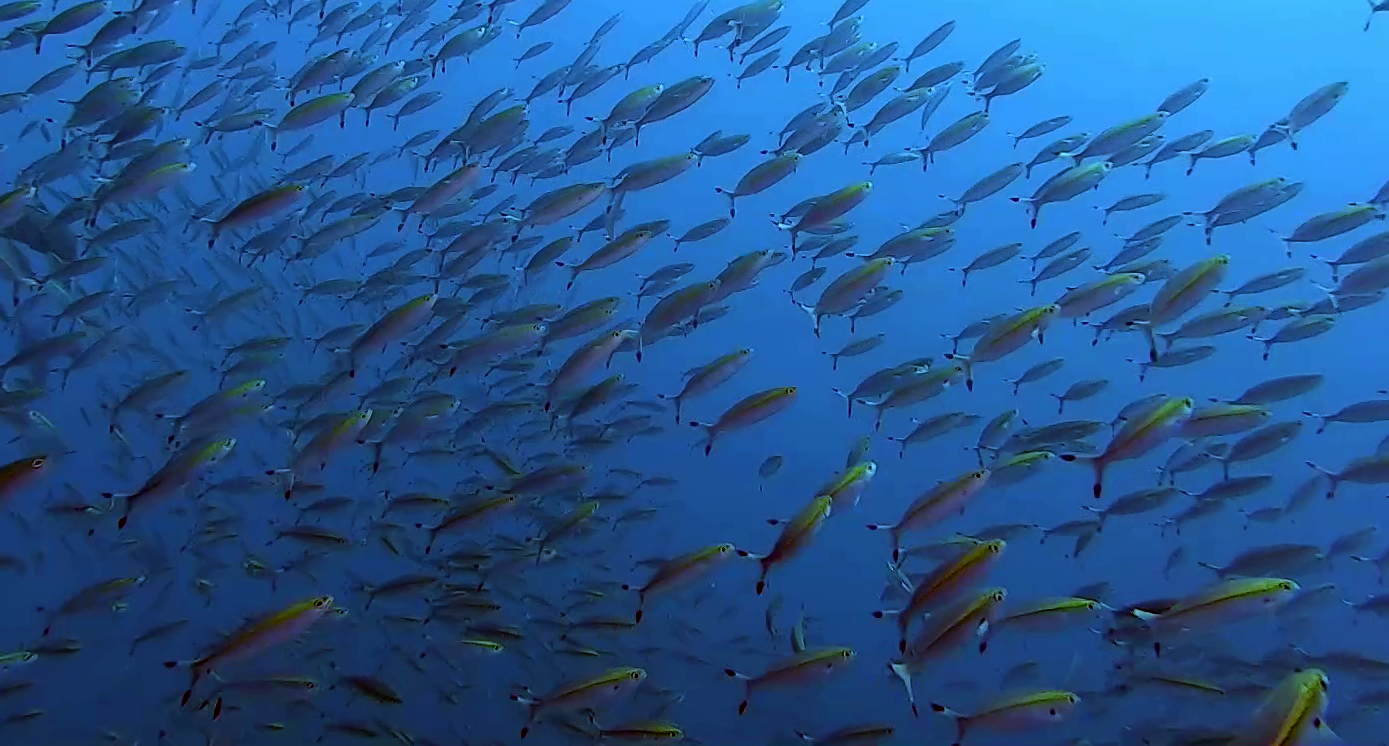
The coral reef is an underwater ecosystem characterized by reef-building corals. Reefs are formed of colonies of coral polyps held together by calcium carbonate. Most coral reefs are built from stony corals, whose polyps cluster in groups. Coral belongs to the class Anthozoa the animal phylum Cnidaria, which includes sea anemones and jellyfish. Unlike sea anemones, corals secrete hard carbonate exoskeletons that support and protect the coral. Most reefs grow best in warm, shallow, clear, sunny and agitated water. Coral reefs first appeared 485 million years ago, at the dawn of the Early Ordovician, displacing the microbial and sponge reefs of the Cambrian.
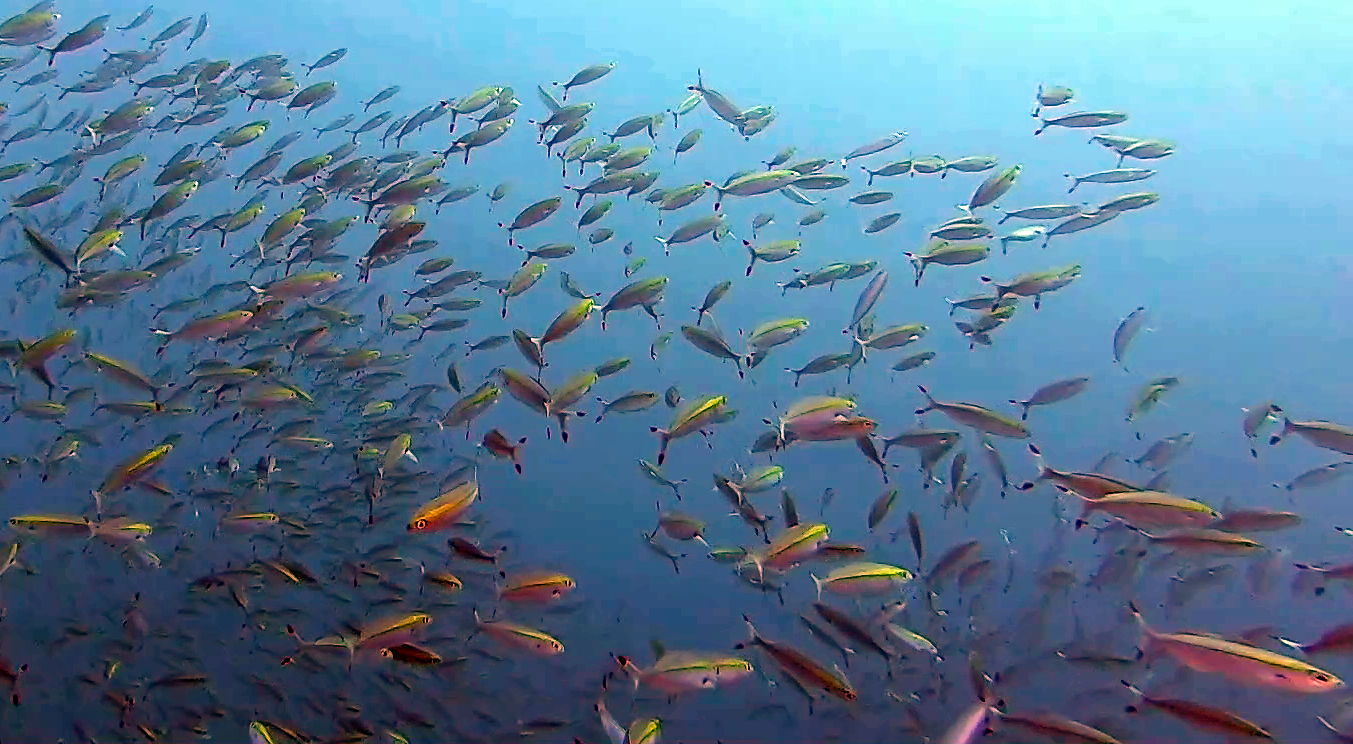
Sometimes called rainforests of the sea, shallow coral reefs form some of Earth’s most diverse ecosystems. They occupy less than 0.1% of the world’s ocean area, about half the area of France, yet they provide a home for at least 25% of all marine species, including fish, mollusks, worms,echinoderms, sponges, tunicates and other cnidarians. Coral reefs flourish in ocean waters that provide few nutrients. They are most commonly found at shallow depths in tropical waters, but deep water and cold water coral reefs exist on smaller scales in other areas.
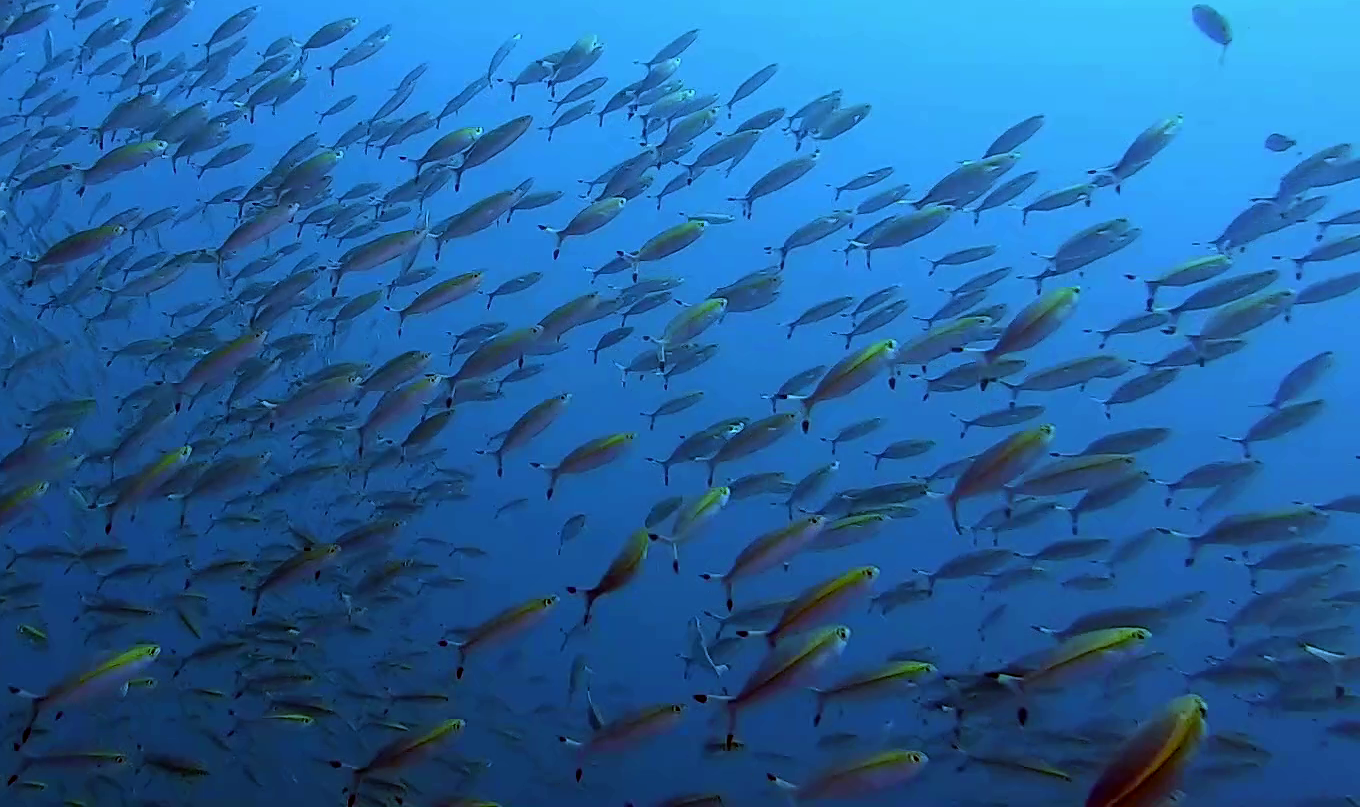
Coral reefs deliver ecosystem services for tourism, fisheries and shoreline protection. Coral reefs are fragile, partly because they are sensitive to water conditions. They are under threat from excess nutrients (nitrogen and phosphorus), rising temperatures, oceanic acidification, overfishing (e.g., from blast, fishing, cyanide fishing, spearfishing on), sunscreen use, and harmful land-use practices, including runoff and seeps (e.g., from injection wells and cesspools). Over 4,000 species of fish inhabit coral reefs. The reasons for this diversity remain unclear. Hypotheses include the “lottery”, in which the first (lucky winner) recruit to a territory is typically able to defend it against latecomers, “competition”, in which adults compete for territory, and less-competitive species must be able to survive in poorer habitat, and “predation”, in which population size is a function of postsettlement piscivore mortality. Healthy reefs can produce up to 35 tons of fish per square kilometer each year, but damaged reefs produce much less.
(extract from Wikipedia)

